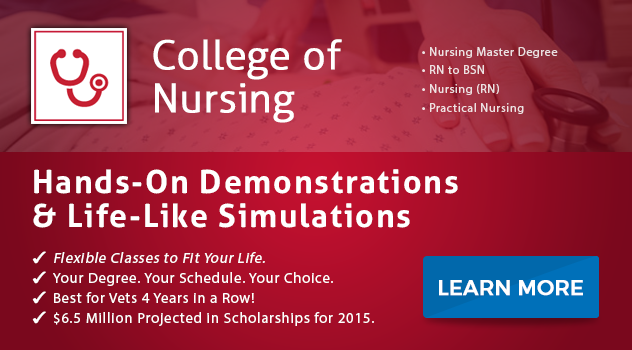Nursing Demands and Expectations: What Will Your Role as a Nurse be Like?
Not many people are lucky enough to feel a direct calling towards a certain path, like nurses. If you have an interest in healthcare and a profound desire to help the people around you, a future as a RN might be the right choice for you. If you’re thinking about becoming a nurse you might be wondering what your role and responsibilities will be like.
What is it like to be a Nurse?
Although working as a nurse may vary due to a variety of factors, here are some things that you should know about being a nurse:
Nurses find their work meaningful and fulfilling: Lots of nurses wake up every day knowing that they are going to make a difference in people’s lives. According to a recent study, healthcare jobs were ranked very high in terms of meaning.
Nurses can sometimes get stressed: While the work may be physically draining, there’s much more to it. Nurses have several responsibilities. They are expected to provide high-quality care to their patients and also maintain a face of emotional strength. But at the end of the day, many nurses find their work rewarding, because they helped save a life or put a smile on someone’s face on the worst day of their life.
The work of nurses is very important: Nurses have a tremendous amount of responsibility, and they are expected to juggle the above factors while remaining calm beacons of care, skill, and support.
Preparing for the Job Ahead of You
Determine your future path: The education requirements are related to the type of nursing you want to pursue. As a Registered Nurse, you will be qualified to provide a range of patient care and can focus on specialty areas such as cardiology, neonatology, or neurology.
Choose an educational program: After determining your path, you can then choose the appropriate nursing program. As an aspiring RN, you can earn your ADN (Associates Degree in Nursing) in less than two years at an accredited university. Most educational programs combine classroom teaching with hands-on clinical experience in a healthcare environment and laboratory environment. Some of the core areas of instruction include:
- Microbiology
- Acute Care
- Nutrition
- Medical/Surgical Nursing
- Pharmacology
- Anatomy and Physiology
- Maternal/Newborn Nursing
Graduate and pass the NCLEX: With your degree in hand, the only thing remaining is the NCLEX (National Council Licensure Exam). All states require nurses to be licensed before they can start working. With your ADN you will qualify to sit for the NCLEX-RN. The NCLEX-RN contains 75 to 265 questions that cover all the areas of nursing. Be prepared to spend some time prepping for this exam because it’s one of the most important tests that you will ever take if you want to become a nurse. But don’t panic! Your ADN degree program should equip you with everything you need to pass the exam.
Find your place: After passing the NCLEX and receiving your license, you can start asking yourself some important questions: Where do you want to work? What type of nurse should you become?
Educational opportunities: With an associate’s degree, you can apply for a RN-to-BSN program to obtain your bachelor’s degree. A BSN nurse will have options that an ADN doesn’t have, as well as more responsibilities. If you’re ready to progress, this could be a great move.
How Formal Education will help you Learn More about Your Nursing Role
Formal nursing education at its core focuses on five main elements of practice that make up the nursing roles. These elements include:
- Assessing patients: Formal education will prepare you to collect and analyze information about the physical conditions of patients as well as their response to conditions influenced by social, spiritual, psychological, lifestyle and economic factors.
- Making sound clinical judgments: Through formal education, you will learn how to identify a patient’s symptoms, responses and any other needs of your patients based on the emerging problems or complications.
- Planning: As a RN it will be your responsibility to create detailed care plans by setting achievable goals and the expected outcomes.
- Implementing care plans: You will also learn how to put care plans into effect for your patients without interruption.
- Evaluating care plans: One of the main things you will learn is how to continuously monitor the status of patients and determine whether their care is effective and if it needs modification.
Are you interested in becoming a registered nurse? If you want to earn an Associate of Applied Science in Nursing, ECPI University offers this program at an accelerated rate. For more information about nursing at ECPI University, connect with a skilled admissions counselor today.
It could be the Best Decision You Ever Make!
DISCLAIMER – ECPI University makes no claim, warranty, or guarantee as to actual employability or earning potential to current, past or future students or graduates of any educational program we offer. The ECPI University website is published for informational purposes only. Every effort is made to ensure the accuracy of information contained on the ECPI.edu domain; however, no warranty of accuracy is made. No contractual rights, either expressed or implied, are created by its content.
For more information about ECPI University or any of our programs click here: http://www.ecpi.edu/ or http://ow.ly/Ca1ya.





